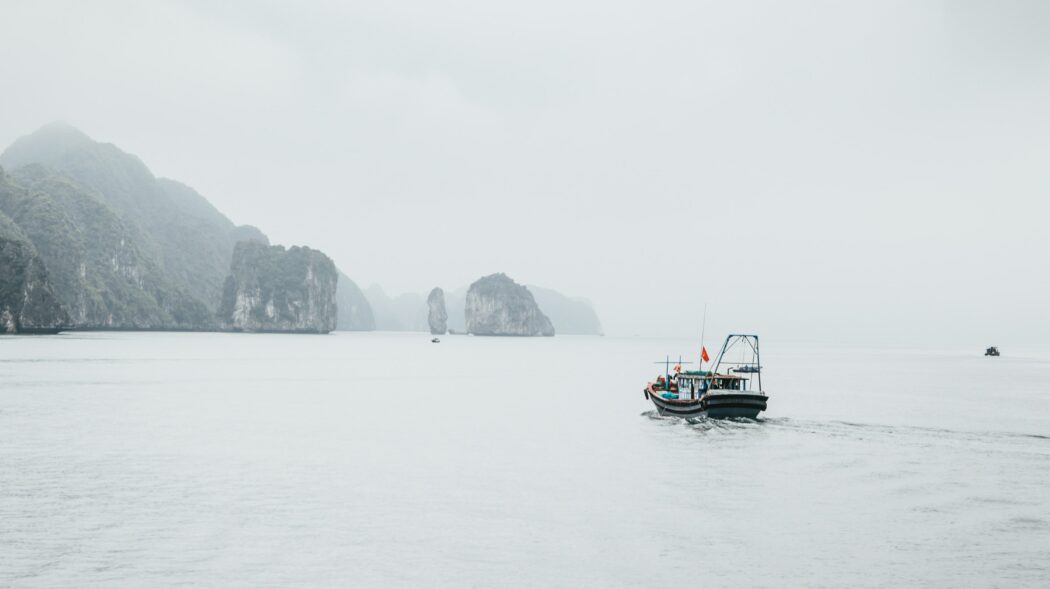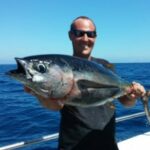Plan a Deep Sea Fishing Trip in 2023 (With Packing List)

Your first deep sea fishing trip can be the trip of a lifetime (assuming you don’t get seasick). Do you dream of pulling in a shark? Would you settle for a sea trout? Whatever you’re targeting, it’s time to start planning.
Travel for deep sea fishing isn’t – and shouldn’t be – a spur of the moment event (unlike inshore fishing). For your safety, and for the best catch, you’ll need to plan ahead. Here’s how to plan a deep sea fishing trip you’ll remember for years to come.
Choose Your Destination
When you’re planning a deep sea fishing trip, choosing your destination is almost as exciting as getting out on the water. Think about it: with over 95,000 miles of American coastline, to say you have plenty of options is an understatement. Thinking about an international trip? The world is just a charter away.
Don’t let all that saltwater overwhelm you. Choosing where you’ll wet your line is easy when you consider what you’d like to accomplish. Ask yourself a few questions:
- Will I stay within the states or travel globally?
- What is my budget?
- What fish am I targeting?
- How long will I be at my destination?
- Will I hire a group charter or a private one?
Once you’ve answered those basic questions, you’ll have a better idea of where to get started. Let’s assume you’re planning a trip within the United States. You wouldn’t mind staying a week or so, and you certainly wouldn’t mind pulling a few mahi-mahi into your boat.
Now you’re starting to narrow it down! You already know that, say, Maine isn’t going to be your destination this time. Do a little research now, and talk to experienced fishermen either in person or on online forums. Don’t be afraid to ask questions! Fishermen love little more than to talk about fishing!
Once you’ve got a general idea of the general geographical area and the body of water you’re going to visit, it’s time to plan a bit more in depth.
Choose Your Charter
If you’re an experienced shore fisherman, you may be tempted to charter your own boat and head out with a few friends. We strongly advise against that.
Deep sea fishing is a completely different animal to inshore fishing like fishing from a pier or surf fishing from the beach, and you’ll want an experienced guide. Not only will your guide help ensure your safety throughout your trip, they’ll also be experienced in those specific waters – that means prime fishing for you.
With that in mind, there are three general types of charters you can hire. Let’s look at your options.
Private Charter
The first is a private charter. A private charter is a boat that’s hired solely for you and your friends. The group will usually pay one set fee, and you’ll generally be given to option to rent onboard equipment or bring your own.
Group Charter
The second is a group charter. You and your group can still fish together, but you’ll be sharing the boat with other small groups with similar interests. There are typically from six to 15 or so people in a group charter, and your boat will be around the 20-foot ballpark. Group charters are great if you want a slightly more cost-effective trip and don’t mind a few friendly strangers.
Offshore charters can be either private or group-based. Private charters offer exclusivity, allowing individuals or groups to book the entire boat for themselves and customize the trip. Group charters, on the other hand, enable individuals or small groups to book spots on a shared boat, offering a more economical option. Private charters provide privacy and tailored experiences, while group charters offer affordability and the opportunity to meet new people.
Both private and group charters have their own advantages and appeal to different types of customers, so it’s essential to inquire with the charter company about their offerings and choose the option that best suits your needs. You might want to consider an offshore fishing charter, where they provide all the gear. That way, you can focus on the experience without worrying about equipment.
Offshore fishing charters are popular for their access to deeper waters and larger fish species. Whether opting for a private or group charter, these trips offer memorable experiences for anglers of all levels. Be sure to communicate your preferences, such as targeting specific fish species or focusing on certain techniques, to ensure the charter meets your expectations. With the right choice, an offshore fishing charter can provide an exciting adventure on the open seas.
Party Boat
Your third option is to charter a party boat. Party boats are a fantastic option if you’re just testing the waters of deep sea fishing, so to speak, and want an affordable option. You’ll be on board with a larger group of people – there’s a minimum head count required for most – so if you’re not into the social aspect of fishing this may not be a good option for you. You also may not learn quite as much on a party boat as on a smaller charter.
While many more serious fishermen might be annoyed if you’re in the area just make sure you’re respectful (and that the captain knows how to properly pass a fishing boat) and you shouldn’t have any issues.
The charter you choose is solely up to you, your budget and your social preferences. (Don’t forget, it’s customary to tip the captain, so factor that in!) Check out reviews, target species and especially charter licenses before you embark.
Where Will You Stay?
Now that you know the general area you’ll be visiting, it’s time to choose your lodging. The possibilities are going to rely on your charter in many ways, but in others it’s all about what you prefer. When you’re booking your lodging, consider:
Most charters leave early in the morning, especially if you’ve booked an all-day trip.
Hotels and lodges around fishing hot spots book up fast and charge higher rates “in season”
Many fishing hot spots are home to quite a few eclectic fishing cabins and cottages
Even if they don’t fish, your family may want to join you and enjoy local attractions
Do some research online and with your destination’s Travel Bureau. What do the locals recommend? Is the lodging close to your charter, allowing for a quicker commute in the morning? Are there amenities on site or local attractions your family will like? Do you need modern accommodations or is a rustic cabin perfect for you?
As with just about every other step of planning your deep sea fishing trip, the hotel you choose has a lot do with your personal preference! This trip will be exciting and memorable no matter what, but it certainly helps to have a convenient, comfortable place to rest your head at the end of a long day.
Pack Your Bags and Go!
Depending on where you’re traveling, what you pack in your suitcase, how many rods you’ll take with you and your tackle box is going to vary. That said, some things are pretty consistent. Don’t forget to pack:
- Your fishing license, unless your charter covers this for you
- Sunblock and a protective fishing hat
- Fishing sunglasses
- Your camera
- Rain gear
- Clothes you can layer (think cool mornings and hot afternoon sun)
- Non-skid shoes or fishing shoes
- Tackle recommended for your target, unless this is onboard.
- Cash for tipping
- A cooler to bring your catch home
It is also helpful for you to know the causes and remedies if ever you or someone with you gets dizzy when fishing.
When you book your charter, ask if there are any considerations you may not have thought of. For example, depending on what kind of fishing you’re g oing to be doing, many deep sea fishermen will recommend an electric fishing reel to help with the big boys. Even something as simple as being unprepared for a mid-day Florida rain can turn a great trip uncomfortable very quickly. Check out our helpful guide for what to wear while fishing to get some ideas of what to pack.
Pack for safety and comfort, and don’t worry about the rest. It won’t ruin your trip to forget a toothbrush, so there’s no sense stressing. Remember – your first deep sea fishing trip is the trip of a lifetime. Plan carefully, then relax and just enjoy the experience!
As an Amazon Associate, Fishermen's Angle earns from qualifying purchases. We get commissions for purchases made through links in this post.
